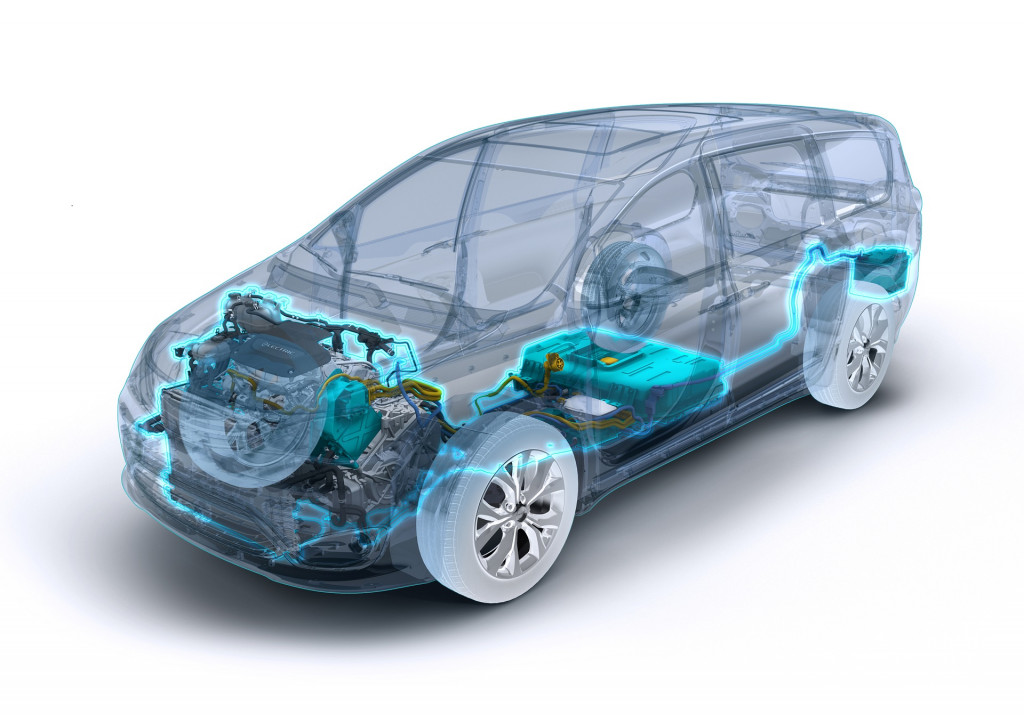If you thought the idea of a Sony electric car at CES 2020—hypothetical as it might be—earlier this month was wild, what about the idea of Fiat Chrysler working together with Foxconn to develop electric cars?
Yes, that’s the same Foxconn that’s probably best known for making the iPhone you hold close—and maybe the one that built the MacBook you’re supposed to be working on right now, or the Sony PlayStation 4 that kept you gaming too late last night.
Foxconn, officially Hon Hai Precision Industry Co., is based in Taiwans, but is expected to open a $10 billion factory this year in Racine County, Wisconsin.

2018 Chrysler Pacifica Hybrid
FCA, which has Fiat, Jeep, Ram, and Chrysler, is merging operations with France’s Groupe PSA (Citroën, DS, Opel/Vauxhall and Peugeot) confirmed last week that it’s in discussions with Foxconn to potentially create a joint venture “to develop and manufacture in China new generation battery electric vehicles and engage in the IoV (Internet of Vehicles) business.”
In the statement, FCA said that the business would initially be focused on China.
The electronics giant is no stranger to EVs and EV tech. It’s previously assembled battery packs for BAIC electric cars in China, and it had a now-defunct project to develop an EV for the Chinese market that would cost less than $15,000.

2020 Byton M-Byte
There’s a further potential convergence here: Foxconn, with Tencent and the dealer Harmony New Energy Auto, founded the electric-vehicle startup Byton (originally Future Mobility). What if such an agreement were to use FCA to help support Byton’s vehicles in the U.S., for instance? Or Foxconn’s manufacturing help to build a self-driven vehicle that used Byton’s interface work and Chrysler’s design heritage?
As the success of the auto-industry establishment points to a more tech-driven transportation future, reaching past some of the old dividing lines could prove a very smart decision.
